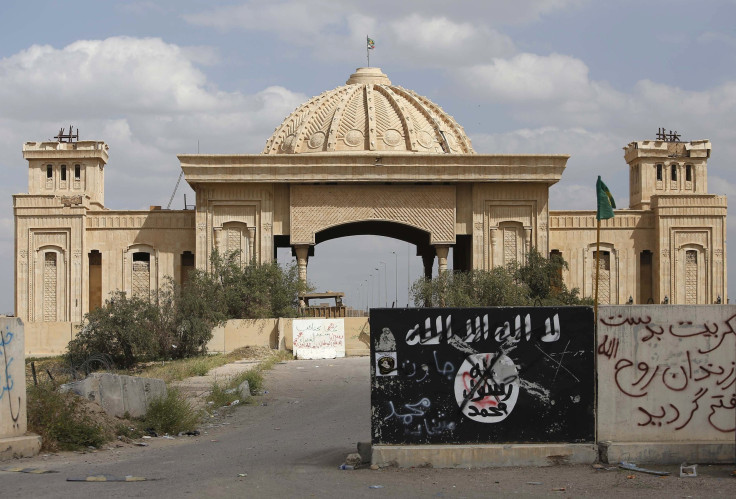Is ISIS Declining? Despite Paris Attacks, Islamic State Group Losing Ground, Struggling Online

The Islamic State group is getting more international attention than ever in light of the November Paris attacks, but the militant group may be struggling behind the scenes. The Economist reported Saturday that the extremist group, also known as ISIS, could be weakening after losing strongholds in Iraq and encountering issues on the internet.
"Although far from defeated, the group can no longer live up to its slogan 'to remain and expand,' " the Economist reported.
As of October, ISIS had about 30,000 fighters based in Syria and Iraq, according to USA Today. U.S.-led airstrikes in the region have killed about 20,000 of them.
Soldiers on the ground have also made headway as well, with Slate reporting that ISIS has lost up to 25 percent of its land since last year. In early November, the Kurdish peshmerga retook control of Sinjar, Iraq, which complicated travel between ISIS' bases of Raqqa, Syria, and Mosul, Iraq. Iraqi troops are also reportedly closing in on Ramadi, Iraq, which the group captured in May.
The group's online presence has shrunk, as well. A recently released study by terrorism expert Aaron Zelin showed ISIS, which has become known for its professional-looking propaganda videos, isn't publishing as much content as it used to. Between July and September of this year, for example, the extremists sent out about 7,500 media releases. Between September and November, this number fell to about 5,900.
"Military strikes, and the resulting human and material losses, have impaired ISIS’s media capacity," Egypt’s Dar El-Iftaa Monitor for Extremist Fatwas said in a statement last week. "Their losses are directly reflected in their media activity, as much of its information infrastructure was brought down."
The Economist also suggested social media companies like Facebook and Twitter have become more aggressive in their fight to forbid use by terrorists. The group moved to the so-called dark web to sidestep this and other issues, according to previous International Business Times reporting.
"[ISIS] is weak and they don’t want you to know it," Australian TV show host Waleed Aly said recently in a viral video clip.
© Copyright IBTimes 2024. All rights reserved.






















